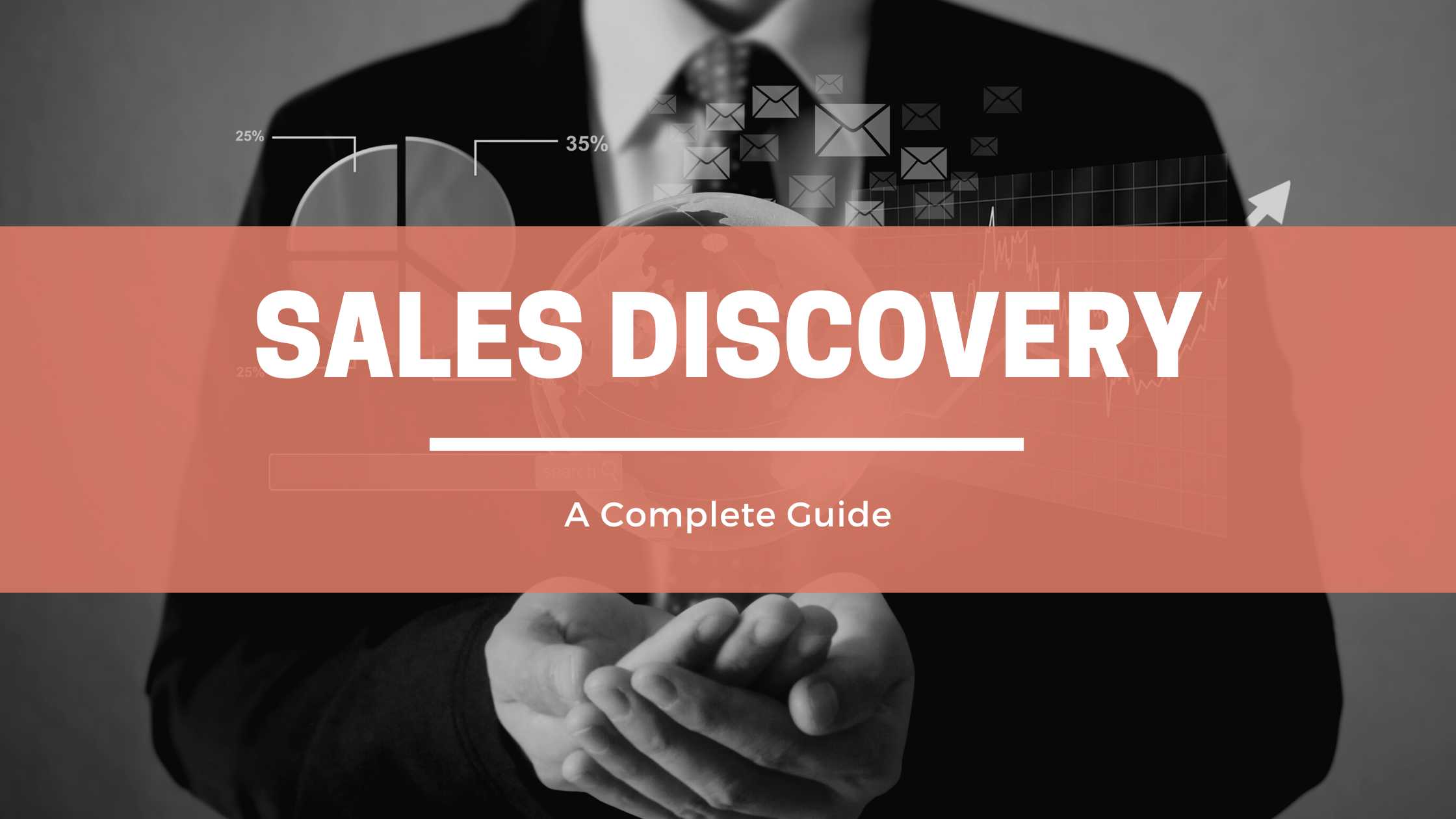Sales discovery is an essential step in the sales process that helps companies increase their revenue by identifying and targeting the most promising leads and tailoring their sales approach accordingly.
What is sales discovery?
Sales discovery is the process of identifying and qualifying potential customers and their needs in order to determine the best way to sell a product or service to them.
What is an example of sales discovery?
An example of sales discovery would be a salesperson conducting research on a company and its industry to determine if the company would be a good fit for the product or service they are selling, and if there is a specific need within the company that their product or service can fulfill.
What is the importance of sales discovery?
The importance of sales discovery lies in its ability to help salespeople focus their efforts on the most promising leads, as well as gather information about potential customers that can be used to tailor sales pitches and close deals more effectively. Additionally, by understanding the needs of a potential customer, companies can improve their product or service to better meet those needs. Overall, sales discovery helps companies increase their sales and revenue by identifying and targeting the most promising leads and tailoring their sales approach accordingly.
What is the benefit of sales discovery?
The benefit of sales discovery is that it helps companies increase their sales and revenue by identifying and targeting the most promising leads and tailoring their sales approach accordingly. It allows salespeople to focus their efforts on the most likely potential customers and their needs, which increases the chances of closing a deal. Additionally, by understanding the needs of a potential customer, companies can improve their product or service to better meet those needs.
What are the sales discovery methods?
Some common sales discovery methods include:
- Researching a company and its industry to determine if the company would be a good fit for the product or service being sold.
- Conducting customer interviews to gather information about potential customers’ needs and pain points.
- Analyzing data on website traffic and customer behavior to identify potential leads.
What are the steps of sales discovery?
The steps of sales discovery typically include:
- Identifying potential leads through research, data analysis, or other means.
- Qualifying leads by determining if they are a good fit for the product or service being sold.
- Gathering information about potential customers’ needs and pain points through interviews or other means.
- Using the information gathered during discovery to tailor the sales pitch and close the deal.
- Continuously gathering feedback and data to improve sales approach
What is a discovery question in sales?
A discovery question in sales is a question that is asked during the sales discovery process with the goal of gathering information about a potential customer’s needs, pain points, and decision-making process. These questions are designed to help the salesperson understand the potential customer’s situation and identify how their product or service can best meet their needs.
What are discovery questions in sales?
Discovery questions in sales are questions that are asked during the sales discovery process with the goal of gathering information about a potential customer’s needs, pain points, and decision-making process.
Some examples of discovery questions in sales include:
- Can you tell me about your current situation and what brought you to look for a solution like ours?
- What are the main challenges you are facing in your business right now?
- How do you currently handle [specific task or process]?
- What have you considered as solutions to your current challenges?
- How do you measure success in your current operations?
- What is your budget for this project?
- Who is involved in the decision-making process for this purchase?
- What are the key factors that you consider when evaluating vendors?
What are the types of sales discovery questions?
The types of sales discovery questions can include:
- Need-based questions
- Decision-making process questions
- Budget and timeline questions
- Competitive questions
- Qualification questions
- Demographic questions
- Behavioral questions
What is sales discovery strategy?
A sales discovery strategy is a plan or approach that a salesperson or a company uses to gather information about potential customers and their needs in order to determine the best way to sell a product or service to them. The strategy outlines the steps and methods that will be used to identify and qualify leads, gather information, and tailor the sales pitch.
What is pre-discovery in sales?
Pre-discovery in sales refers to the initial research and identification of potential leads before the actual discovery process begins. This includes identifying potential customers and their needs, researching their industries, and gathering information about their decision-making processes.
What is sales discovery skill?
Sales discovery skill refers to the ability of a salesperson to effectively gather information about potential customers and their needs during the sales discovery process. This includes the ability to ask effective discovery questions, listen actively, and interpret and use the information gathered to tailor the sales pitch and close the deal. Salespeople with strong sales discovery skills are able to quickly identify and qualify leads, gather valuable information, and use that information to create a compelling sales pitch.
How to do discovery in sales
- Identify potential leads through research, data analysis, or other means.
- Qualify leads by determining if they are a good fit for the product or service being sold.
- Gather information about potential customers’ needs and pain points through interviews or other means.
- Use the information gathered during discovery to tailor the sales pitch and close the deal.
- Continuously gather feedback and data to improve sales approach
How to learn sales discovery
- Study and research effective sales discovery methods and best practices.
- Observe and learn from experienced salespeople.
- Practice asking discovery questions and actively listen to potential customers.
- Seek feedback and critique on your own sales discovery approach.
- Participate in training or workshops that focus on sales discovery skills
How do you measure sales discovery?
- Track the number of leads identified and qualified through the discovery process.
- Measure the conversion rate of leads to customers.
- Gather feedback from customers on how well the sales pitch met their needs.
- Analyze data on customer behavior, website traffic, and sales metrics to identify areas for improvement in the discovery process.
- Continuously monitor the progress and make adjustments accordingly.
What is sales discovery target?
Sales discovery target refers to the specific goals or objectives that a salesperson or company sets for the sales discovery process. These targets can include a certain number of leads identified and qualified, a specific conversion rate of leads to customers, or a certain amount of revenue generated from leads acquired through the discovery process.
What is sales discovery metrics?
Sales discovery metrics are a set of quantitative measurements that are used to track the performance of the sales discovery process. These metrics can include the number of leads identified and qualified, the conversion rate of leads to customers, the average deal size, and the return on investment (ROI) of the sales discovery process.
What is sales discovery KPIs?
Sales discovery KPIs (Key Performance Indicators) are specific, measurable values that evaluate the performance of the sales discovery process against established targets. Examples include: Number of leads identified, conversion rate of leads to customers, average deal size, and return on investment (ROI) of the sales discovery process. These KPIs help the sales team and management track progress and identify areas for improvement.
What are characteristics of a good prospect?
Characteristics of a good prospect:
- They have a need for the product or service being offered
- They have the budget and decision-making authority to make a purchase
- They are actively looking for a solution to their problem
- They have a sense of urgency to solve their problem
- They fit the target market or ideal customer profile
What is the most effective way of prospecting?
The most effective way of prospecting can vary depending on the product or service being offered, the target market, and the salesperson’s personal style. Some common and effective ways of prospecting include:
- Networking and building relationships with potential customers
- Leveraging social media and online tools to identify and reach out to potential customers
- Attend industry events and conferences
- Referral marketing
- Cold calling or emailing
- Leveraging data and analytics to identify potential leads
- Creating and publishing valuable content that attracts potential customers
What is a typical sales process?
A typical sales process typically includes the following steps:
- Prospecting: Identifying potential customers and leads.
- Qualifying: Determining if a lead is a good fit for the product or service being sold.
- Needs Analysis: Gather information about the potential customer’s needs and pain points.
- Presentation: Tailoring the sales pitch to the customer’s needs and presenting the product or service.
- Handling Objections: Addressing any concerns or objections the customer may have.
- Closing: Finalizing the sale and securing the customer’s commitment to purchase.
- Follow-up: Maintaining contact with the customer and addressing any post-sales needs.
What is a sales discovery checklist?
A sales discovery checklist is a tool that can be used to ensure that all the key steps in the sales discovery process are completed. This can include:
- Researching and identifying potential leads
- Qualifying leads
- Gathering information about potential customers’ needs and pain points
- Tailoring the sales pitch
- Continuously monitoring the progress and making adjustments accordingly.
A sales discovery checklist typically includes tasks and questions that need to be completed or answered before moving to the next step. The main goal of the checklist is to be sure that all the important information is gathered and that the sales approach is tailored to the customer’s needs for higher chances of closing the deal.

